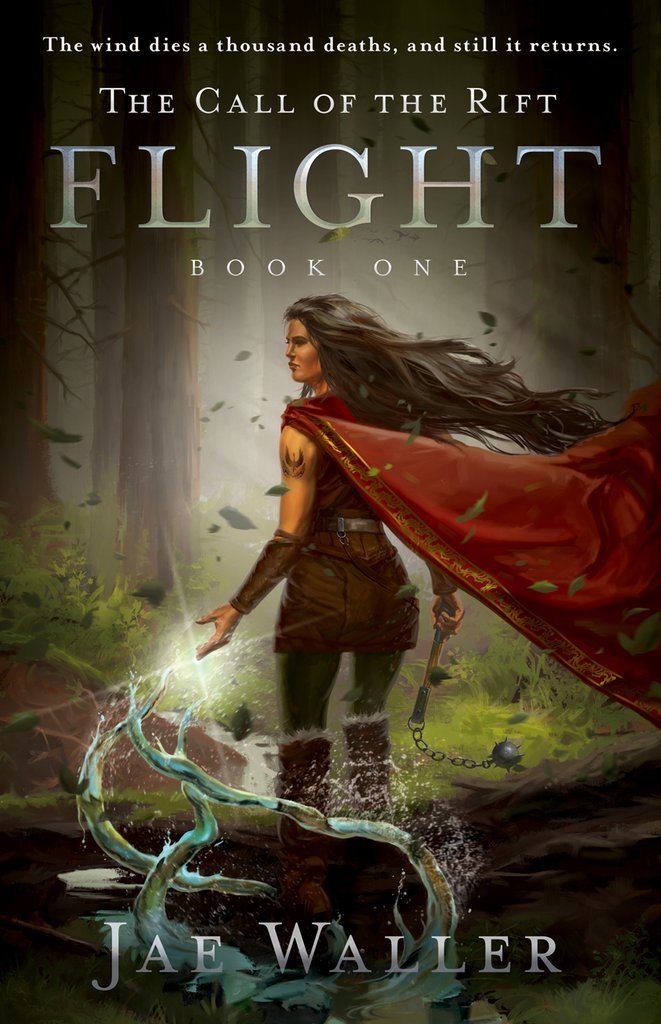G. Deyke reviewed The Call of the Rift - Flight by Jae Waller
[Adapted from initial review on Goodreads.]
5 stars
(Disclaimers: Jae Waller is an internet acquaintance of mine, with whom I became acquainted before reading the book. Also, I am not authorised to speak on the portrayal of the indigenous cultures in the book - particularly not to what extent the handling is appropriative/exploitative vs. respectful - and as a result I will be ignoring that aspect entirely. I will mention that colonialism is portrayed but not condoned. I will also mention that while magic is not unique to any one culture in the book, the type and distribution varies between demographics. Make your own judgements on whether that's a problem - or better yet, ask a Native Canadian, ideally one from the Northwest Coast.)
Though I can't comment on the real-world impact of the portrayal, I can happily judge the handling of culture in general in a fantasy context. There's a lot to love about this book - …
(Disclaimers: Jae Waller is an internet acquaintance of mine, with whom I became acquainted before reading the book. Also, I am not authorised to speak on the portrayal of the indigenous cultures in the book - particularly not to what extent the handling is appropriative/exploitative vs. respectful - and as a result I will be ignoring that aspect entirely. I will mention that colonialism is portrayed but not condoned. I will also mention that while magic is not unique to any one culture in the book, the type and distribution varies between demographics. Make your own judgements on whether that's a problem - or better yet, ask a Native Canadian, ideally one from the Northwest Coast.)
Though I can't comment on the real-world impact of the portrayal, I can happily judge the handling of culture in general in a fantasy context. There's a lot to love about this book - the characterisation, the dialogue which manages to be informal without feeling overly anachronistic - but the cultural complexity is easily my favourite aspect. It isn't just that each culture feels real and distinct, or the complex ways in which they interact - it's in the way the characters each individually interact with their cultures (and others'). No character is a stereotype of their culture. A culture's values, religion, &c. shape those of the characters belonging to them, but do not determine them. The writing style makes it a pleasant and easy read, but it's this depth that makes it an interesting one.
There was one aspect that I liked less, though it might be a matter of personal preference. Slightly veiled spoilers follow:
There is a sex scene.
This isn't, in itself, necessarily bad. Nor is it especially graphic or anything; but nonetheless, I found it uncomfortably intimate, especially given the characters' closeness beforehand (to wit: not all that close). There was enthusiastic consent on both sides, but perhaps because I failed to empathise with Kateiko's attraction to the other party, reading it felt... weird and unpleasant. In the same vein, I was left wondering why. It had to do with Kateiko wanting to feel wanted, but that wasn't clear in the moment, and I felt the scene itself was missing an important emotional hook.
This feeling was only strengthened by Kateiko's taking an abortive poison with hella side effects the next day to prevent pregnancy. I figure if you're going to spend the next day miserable with pain and rash and fever, the sex has really got to be worth it, and I don't feel it was adequately explained that - or why - it was.
Of course, it is very possible that this is just because Kateiko is more interested in sex than I am; this would be supported by her conversations with Iannah, who doesn't understand Kateiko's attractions either. There's a big range of sexual attraction out there, and it could be that a reader who's more similar to Kateiko in this regard might find this scene more natural.
This is a relatively minor quibble, though, and overall I enjoyed the book very much and am quite looking forwards to reading the rest of the series when it comes out.
Selling points: cultural diversity; fantasy violence treated with appropriate seriousness; likeable characters; magic.
Warnings: graphic death of unnamed horses; not a whole lot of diversity in terms of anything other than culture, despite lots of characters in varying degrees of minorness (I'm holding out hope that Iannah will be confirmed queer in a sequel, but as of now there's nothing, nor was disability visible even in the background); casual alcoholism (called out once, but not seriously addressed).

